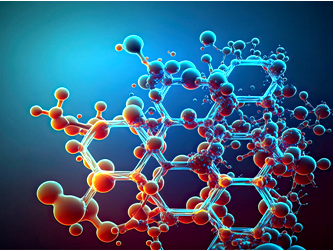HYBRID HYDROGELS INCORPORATING NANOPARTICLES, THEIR TYPES, DEVELOPMENT, AND APPLICATIONS: A COMPREHENSIVE REVIEW OF NANOGELS
Keywords:
Controlled system, drug delivery, hydrogels, nanoparticles, nanogels, nanocomposites, polymerization, stimuli-responsiveAbstract
Nanogels have become significant in biomedical science research due to various unique characteristics. Hydrogels are three-dimensional crosslinked polymer networks that swell by absorbing aqueous solvents. These polymeric networks with sizes from nanometers to micrometres incorporate features of both hydrogels and nanoparticles, exhibiting high efficiency in drug delivery, tissue engineering, and biosensing. The synthesis process involves the chemical and physical crosslinking process, and the nanoparticles can be incorporated either during gelation or in situ. The resulting hydrogel nanoparticle composites exhibit high drug encapsulation capacity, adjustable swelling behaviour, biocompatibility, and responsiveness to stimuli like pH, temperature, and enzymes. They are of uniform size and less toxic, ideal for controlled and targeted drug delivery, and improved therapeutic effectiveness. Newer developments have highlighted its applications in cancer therapy, cardiovascular treatment, wound healing, and neurodegenerative disease management. This review provides a comprehensive analysis of the types of nanogel, the development process and wide-ranging applications, along with insights into future developments in this promising field.

Peer Review History:
Received 6 July 2024; Reviewed 11 September 2024; Accepted 19 October; Available online 15 November 2024
Academic Editor: Dr. Tamer Elhabibi , Suez Canal University, Egypt, tamer_hassan@pharm.suez.edu.eg
, Suez Canal University, Egypt, tamer_hassan@pharm.suez.edu.eg
Reviewers:
 Dr. Mohsen Ali Al-Hamzi, Thamar University, Factuality of Dentistry, Yemen. mohsenalhamzi@gmail.com
Dr. Mohsen Ali Al-Hamzi, Thamar University, Factuality of Dentistry, Yemen. mohsenalhamzi@gmail.com
 Md. Monirul Islam, Department of Pharmacy, Faculty of Health Sciences, Northern University Bangladesh, Dhaka, Bangladesh. monirul.islam@nub.ac.bd
Md. Monirul Islam, Department of Pharmacy, Faculty of Health Sciences, Northern University Bangladesh, Dhaka, Bangladesh. monirul.islam@nub.ac.bd
Downloads

Published
How to Cite
Issue
Section

This work is licensed under a Creative Commons Attribution-NonCommercial 4.0 International License.









 .
.